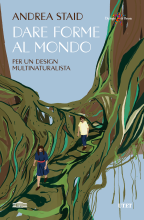Psychoanalysis investigates how a person can play the game of life without losing touch of his or her own desires. Indeed, neurosis is a way of avoiding playing this game, sitting on the sidelines, delegating the responsibility of action to others. It happens to Hamlet, who overturns Oedipus: while Oedipus does not know who he is but acts nonetheless, Hamlet knows everything but does not react.
As hysteria teaches us, the game of desire is about continually deferring one’s satisfaction. In this case, desire evaporates in utopia. But is there a different kind of desire to Hamlet’s faltering version and hysteria’s utopian vision?
The game of life and the game of desire, as outlined and explained by a highly esteemed and renowned psychoanalyst.
Video
Massimo Recalcati is one of the most famous psychoanalysts in Italy. He teaches at the Universities of Pavia and Verona. He is the founder of the Jonas no-profit organisation, a centre for clinical psychoanalysis for new symptoms and Scientific Director of the IRPA School of Specialisation n Psychotherapy as well as a founder and an analyst member of Alipsi. He collaborates with several specialist Italian and international magazines and the cultural section of La Repubblica newspaper. His publications include: Clinica del vuoto. Anoressie, dipendenze e psicosi (Franco Angeli, 2002); Elogio dell’inconscio (Bruno Mondadori, 2008); Cosa resta del padre (2011); Jacques Lacan. Desiderio, godimento e soggettivazione (2012); Jacques Lacan. La clinica psicoanalitica: struttura e soggetto (2016); Contro il sacrificio (2017) per Raffaello Cortina; Il complesso di Telemaco (2013); Le mani della madre (2015) per Feltrinelli.
Massimo Recalcati & i Dialoghi
Il programma sarà disponibile a breve...
Il programma sarà disponibile a breve...


